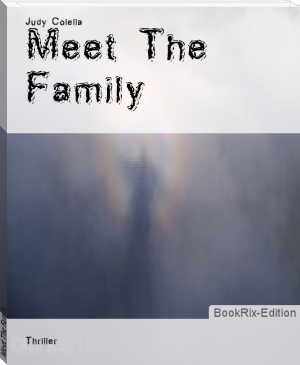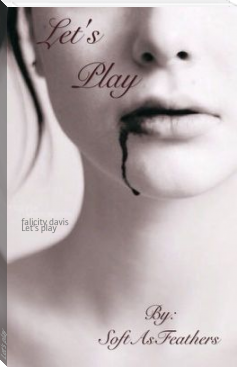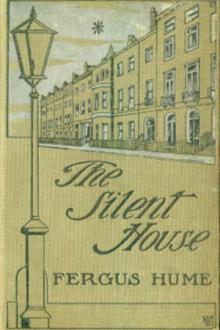NUMB, Judy Colella [i am malala young readers edition .TXT] 📗

- Author: Judy Colella
Book online «NUMB, Judy Colella [i am malala young readers edition .TXT] 📗». Author Judy Colella
Some Time After...
Small. Oval. Pale orange. Sitting in his palm. What was it? Why was it there? He put his head to one side, staring at it. What’s that word printed on it? Its letters are so tiny…ah. The name of a pharmaceutical company, I believe. Oh, right – this is medicine! But why do I have it?
“Please put that in your mouth and drink this.”
The voice sounded like it was coming from a deep cave. Raising his eyes from his palm, he looked up. Not very far – the woman standing before him was much shorter than he was. Older. Dressed in white and blue. Holding a small cup of water. Holding it out to him and looking…annoyed?
“Come on, now. Take that, drink your water, and you can go back to your room, okay?”
Why do I have to take this? What is it? Who is this person? She has a gray hair growing out of her chin.
“Listen. There are others behind you waiting for their medication, too. If you’re going to stand there and, well, here. Why don’t you stand off to the side a bit, yes?” She reached out and put her hands on his upper arms, pushing him to the right. Trying to. He didn’t budge. “Orderly?”
Why is she doing that, I wonder? It hurts. What’s orderly? I’m afraid to go anywhere. She should leave me alone. If I move…I might think. No. Won’t. Not yet. Soon. Maybe.
“Let’s go, sir.”
This voice was much deeper than the woman’s and was coming from behind him. He didn’t turn. It didn’t matter. But then he felt himself being nudged.
“You gonna make me pick you up? You need to take that pill and get back to bed.”
He sounds angry. About what? He regarded the item in his hand more closely. Pill. But I still don’t know why I have it. I suppose I should swallow it, though. He popped it into his mouth. Gulped. Choked a little.
“Drink your water, please!”
Now the woman sounded alarmed, so he took the little cup from her and downed its contents. Ah. Better. That’s why she gave it to me. How nice of her.
“Thank you. You may go back to your room now.”
His room. Was he in trouble? Was this his mother? He didn’t think so, but he didn’t want anything to make sense, so why not?
The person who had been behind him came to stand beside him and took his arm. “Come on, I’ll get you back there.”
There. To his room, he presumed. But why? And who was this man? His father? He doubted it, but again, something that made no sense was preferable to anything that did. He nodded and let the man lead him out of the area in which he’d been standing. Wherever that was. And why did it seem that almost everyone was shorter than he was?
A long hallway, the walls covered in a dull color with shiny paint. Elevator. Another hallway. Strange sounds, strange voices, none of them pleasant. A door, and behind it, not much. Not something he would call a room, his room. Small window with wire in the glass. Ugly tan curtains with no pattern on them pushed open to either side. One chair, metal. A dresser of some sort, painted tan like the curtains. Against the yellowed walls, the tan was depressing. And a bed. Single. No headboard, no footboard. A pillow and mattress sheathed in dingy, well-worn white sheets. A narrow metal vented door he’d not bothered to explore. Probably a closet. Stop thinking.
“Here you go. Sweet dreams.”
That means I should go to sleep. Okay. Tan blanket over the sheets, scratchy, ugly, but the mattress was nice and soft. So was the pillow.
He slid in under the blanket, noticed that it wasn’t nighttime yet, didn’t care. Curled in on himself, closed his eyes. No dreams…no dreams…please, no dreams…no…dr…
Satisfied that the medication was working, the orderly shook his head, his mouth twisted by pity, and went out.
*+*+*+*+*+*+*
Some Time Before...
“Damn reporters.”
“Celia, dear, please. That’s the fifth time you’ve said that in as many minutes.”
Celia Kinsley regarded her husband with an expression that could not, even on a great day, be called apologetic. “Yes, I have. Why can’t they leave us alone, Bry? I mean, I understand their fascination with the kids, but must they crawl up our pant-legs, too?”
Bryson Kinsley chuckled in spite of his exasperation. His wife’s unique way of stating things was an ever-renewing source of entertainment, and he loved her for that and so much more. “I suppose they must, love. They have nothing else to do while waiting for Jett and Atarah to arrive, eh?” He thought about Jett, pride filling his chest. The younger of Bry’s two sons, Jett was an Olympic athlete and brilliant mathematician. An odd combination of abilities, to be sure, and reflecting on the boy’s unique traits, Bry recalled an interview he’d given when Jett had first made the Olympic Track Team.
“How do you explain your son’s almost freakish superiority?” The journalist sitting across from him at the kitchen table had been young, clearly unaware of how offensive her question had sounded.
Dismissing the phrasing as evidence of immaturity and nothing more, Bry had smiled with his response. “Jett combines his talents in a dynamic way, applying math to enhance his skill in every sport. Using algorithms, he’s able to anticipate – and outpace – each possible outcome based on the performance of his team-mates, rival players and challengers, as well as his own.”
“I see. So you believe this puts him at the top of all of the disciplines that qualify him as a decathlete. How interesting!” She had tapped words into her electronic notepad, nodding, not looking at Bry as spoke. “He owns more than one gold medal from his participation in the two Olympic Games in which he’s participated so far. Do you anticipate him taking home more?”
“Who can predict that? He’s doing what he loves, so to be honest, I doubt it matters.”
At that point, the interview had turned to the darker consequence of Jett’s talent. Bry had known this was coming, but this made it no easier to discuss, no less infuriating.
“Now, as you must know, Mr. Kinsley, your son is a constant source of speculation among those who can’t believe a human being is capable of so much greatness without help from illicit and unethical drugs – steroids and other performance-enhancing substances specifically.”
“Are you among them, Miss Plavil?”
The young woman had looked up from her typing to give him a wide smile. “I’m his biggest fan.”
She hadn’t answered his question, but he’d chosen not to pursue it. Besides, the journalist had begun talking about Jett’s photogenic features, saying his good looks were mostly what kept the rest of the media looking for excuses to shadow him everywhere he went. Bry loved hearing positive things about his son, even when wrapped in negative innuendo.
“I imagine it must be difficult, having reporters and paparazzi around your family all the time. How does Jett feel about that?”
“My son left the pleasures of privacy and personal space behind almost as soon as he’d won his first medal. To be honest, he doesn’t seem bothered by it, even though I know he misses his anonymity to a degree.”
The journalist had gone back to typing, but then sat back and asked about Atarah Johanan. With a sigh, Bry switched off the memory, his awareness returning to his present situation. He glanced at his watch. “They’ll be here any minute,” he murmured, leaning closer to Celia’s ear.
“Good. I just want to get home. It’ll be fun to hear about their trip.” She frowned suddenly. “Well, not all of it, of course, since it was their honeymoon.”
Bry chuckled, of the same opinion. He suspected the two had spent more time in their bedroom, but was also looking forward to hearing about Tuscany and the villa they’d rented.
A reporter approached, asking if they’d heard from “the kids.” Bry resented the familiarity and shook his head, not otherwise answering, and the reporter backed off.
“What nerve!” Celia glowered at the newsman’s retreating back, then sighed. “Unfortunately, I doubt the press could have manufactured a more perfect target.”
“True enough.” Bry nodded, considered the sculptress who produced magnificent works in bronze and marble, her nudes rivaling those of Michelangelo, some said. That talent alone had brought her a great deal of attention; what made her irresistible, however, was her beauty.
She was, Bry always said, a perfect match for Jett. Her six-foot frame was slender, graceful, always draped in something delicate and flowing. The perfection of her figure was complemented by a face that was equal parts sweet and gorgeous. With hair that fell in lovely auburn waves to her waist, cobalt-blue eyes made intriguing by soft silver specks, and a clear complexion that hinted at something middle-eastern beneath its translucent blush, she had been described by more than one source as the most beautiful woman in the world.
These two had met when Atarah was commissioned to do a sculpture for the Olympic Committee three years earlier. One of the models for the four athletes to be rendered in bronze was Jett Kinsley. Instant attraction, quick infatuation, had concluded with a depth of love that would never be shaken.
The media was itself in love once again. In its obsession, both Jett’s and Atarah’s families had been swept into the mix, so to speak, and before long, no one on either side of the family had a single day without a camera in it somewhere. The wedding had failed to be small and private as planned, paparazzi and other media types having breached all efforts to keep them out. They’d followed the couple to their limo, followed the limo to the airport, one carload of photographers even braving the tarmac and getting shots of the hired Lear as it sped off down the runway. The only thing they hadn’t been able to ascertain was the couple’s destination.
Still, Bry mused, they’d somehow found out when the two were going to be back, and locust-like, had swarmed into the small terminal. The airport was a private one, and as such did not boast a full contingent of TSA workers, or multiple buildings through which to walk to get to a multitude of arrival and departure gates. There were, in fact, only two.
“Mrs. Kinsley!”
Celia turned, one eyebrow arched. She said nothing.
“What time does their flight arrive?” Apparently undeterred by the woman’s projected frost, the reporter took a step closer, microphone extended.
She turned away again, grasped her husband’s arm and whispered, “Can we wait somewhere else, Bry? These people are giving me a headache.”
“Of course.” He patted her hand, the gesture old-fashioned and very much who he was. He lifted his head and addressed the sea – well, more like a pond, considering the limited size of the room – of expectant news-and-gossip gatherers. “My wife isn’t feeling well. Kindly excuse us.” He offered a stiff smile and waited. When none of the reporters moved, he tried again. “We need to get through here. Would you be kind enough to step aside?”
Before anyone could respond, the loudspeaker buzzed, and a second later a voice came through. “Ladies, gentlemen, Flight 27 will be landing in five minutes. Please clear the area immediately surrounding Gate 6.”
Problem solved. The forward shuffle of an almost instantly hysterical media was alarming. Bryson, after pulling his wife safely aside, suppressed a grin and headed for Gate 7 at a slow trot, Celia in tow. How easily misled those reporters were! The idea for this subterfuge had been his. He hadn’t bothered to tell his wife, suspecting she’d give it away without intention.
The decoy plane that taxied up to Gate 6 was nearly identical to the one pulling in on the other side of the building.





Comments (0)